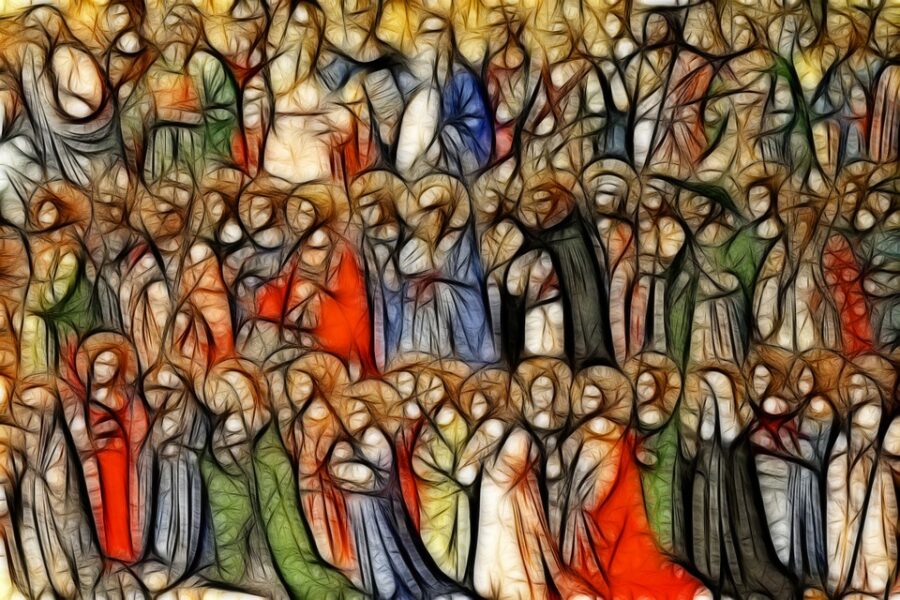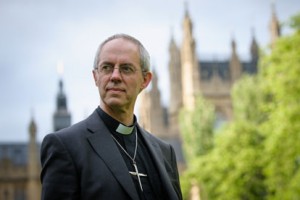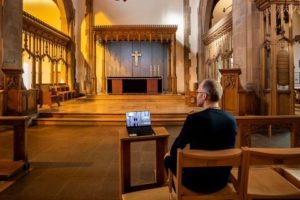Long before I entered the Anglican tradition in college, I harbored a secret curiosity for the saints. Growing up in a local conservative baptist church, “saints” merely referred to those who are in Christ. Biblically speaking, this is true. When St. Paul writes to the Church in Philippi, he writes to the “saints,” literally, the “holy ones” (Phil. 1:1). Since we who are “in Christ” are “saints,” shouldn’t we be suspicious of those who (seemingly) distinguish the saints from the larger body of believers? This was the implied line of logic. Regardless, I couldn’t seem to shake the sentiment that learning the stories of “the saints”– those uniquely recognized in other church traditions– was important.
As it turns out, I wasn’t wrong.
Here are 5 of reasons you should celebrate the lives of those faithful Christ-followers:
We need the example of the saints in the pursuit of becoming conformed to the image of Christ.
It is a common word of advice among poets to practice imitating the craftsmanship and skill of more minor artists in order to become a great artist in the end. If you begin attempting to learn how to write poetry from Dante’s Commedia or Milton’s Paradise Lost, you will find yourself trying to walk in shoes so big it is near impossible to take a step forward at all. Start with shoes closer to your size. Grow into them. Grow out of them. Then try on a bigger pair of shoes. In some ways I think this is true of Christian formation. Yes, we want to be like Christ and we should ultimately strive to follow in the pattern of our Lord’s life. However, trying to “just be like Jesus” can be like trying to take beginning art lessons with Raphael. Sometimes we need to imitate someone who does better at imitating Christ than us. Sometimes we need the saints. Not only do they model for us Christlike holiness and faithfulness, they teach us how to imagine the life of Christ in our own lives. Some of the saints were missionaries. Some were pastors. Some were mothers and fathers. Some were scholars. Some were martyrs. Others were not. And yet, each is recognized for their faithful submission God.
The saints help us envision what it means to embody the Scriptures.
On some saints days (especially those designated as Holy Days) the lectionary provides specific selections of Scripture appropriate for the saint remembered. While some of the readings may narrate the lives of biblical saints (such as Peter, James, or John), other readings– such as those chosen from the Psalter or Epistles– can act as interpretive texts, elucidating further the nature of their faith, the integrity of their actions, or their generosity of spirit. The lectionary readings often invite us to imagine Scripture as lived, as essentially integrated into the life and being of God’s people.
Remembering the saints enlarges our vision of the Church and opens our eyes to God’s faithfulness to his people across the centuries.
Celebrating the saints reminds us that the church is far bigger than what we see and know in our local parishes. The first time I stepped into an Eastern Orthodox Church, I almost forgot to continue walking, my whole body being completely absorbed in the task of drinking in the rich interior. Each of the walls, from floor to ceiling, depicted hundreds of images ranging from hosts of angels and biblical narratives to the faces of saints, their heads each encircled with those holy crowns. I imagine that even if the church hadn’t been occupied, it would have felt full. The painted presence of those faithful saints not only reminded me that the Church is far far bigger than my own experience, but also testified to God’s faithful care for his Church. If God showed up for him… if God provided for her in such need… if God delivered them from such trial… surely He has not forgotten today’s children of the Church.
They train our perception and teach us how to read the lives of the saints who are among us.
When we learn the stories of the saints, our eyes are opened to the manifold ways God enters into the lives of His people. The experiences of the saints and the ways in which God has directed their lives trains us to perceive the stories of our fellow Christians with a ready heart, open to seeing God’s love and mercy and grace– even in times when it feels we have been forsaken. By learning the stories of those who have gone before me, I am able to see with greater clarity God’s presence in the lives of my grandmother, my mother, and my sister. I am able to affirm their experiences of God as well as speak words of encouragement and hope into the moments of darkness and difficulty.
Celebrating the lives of the saints provides opportunities to bring the church into our homes.
Feast days are perfect opportunities to have feasts. Host a feast in your home or backyard to commemorate one of the saints. Invite your priest or pastor. Tell your friends and neighbors. Read aloud and pray together. Eat good food. Fellowship. Encourage one another to become more like those saints who have come before us. By remembering their legacy, we hold their obedience up a light to others and as an opportunity to examine ourselves that we may in the end be joined with them in the glory of our Lord.





Leave a Reply
Your email is safe with us.